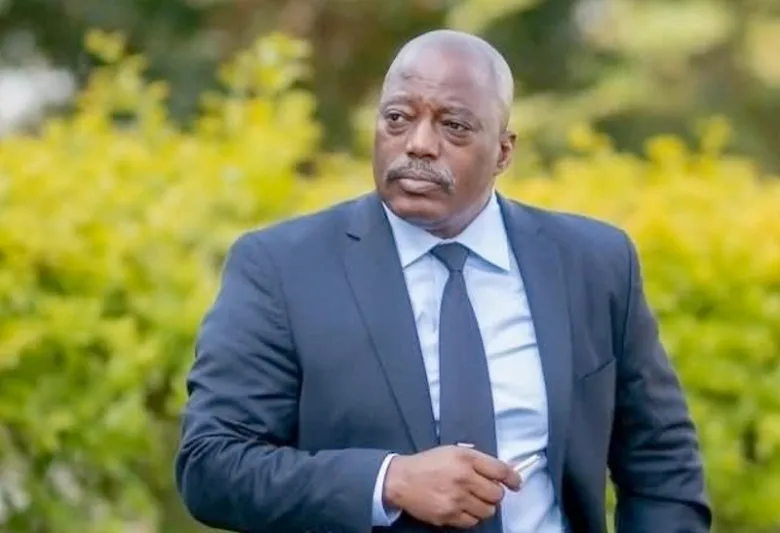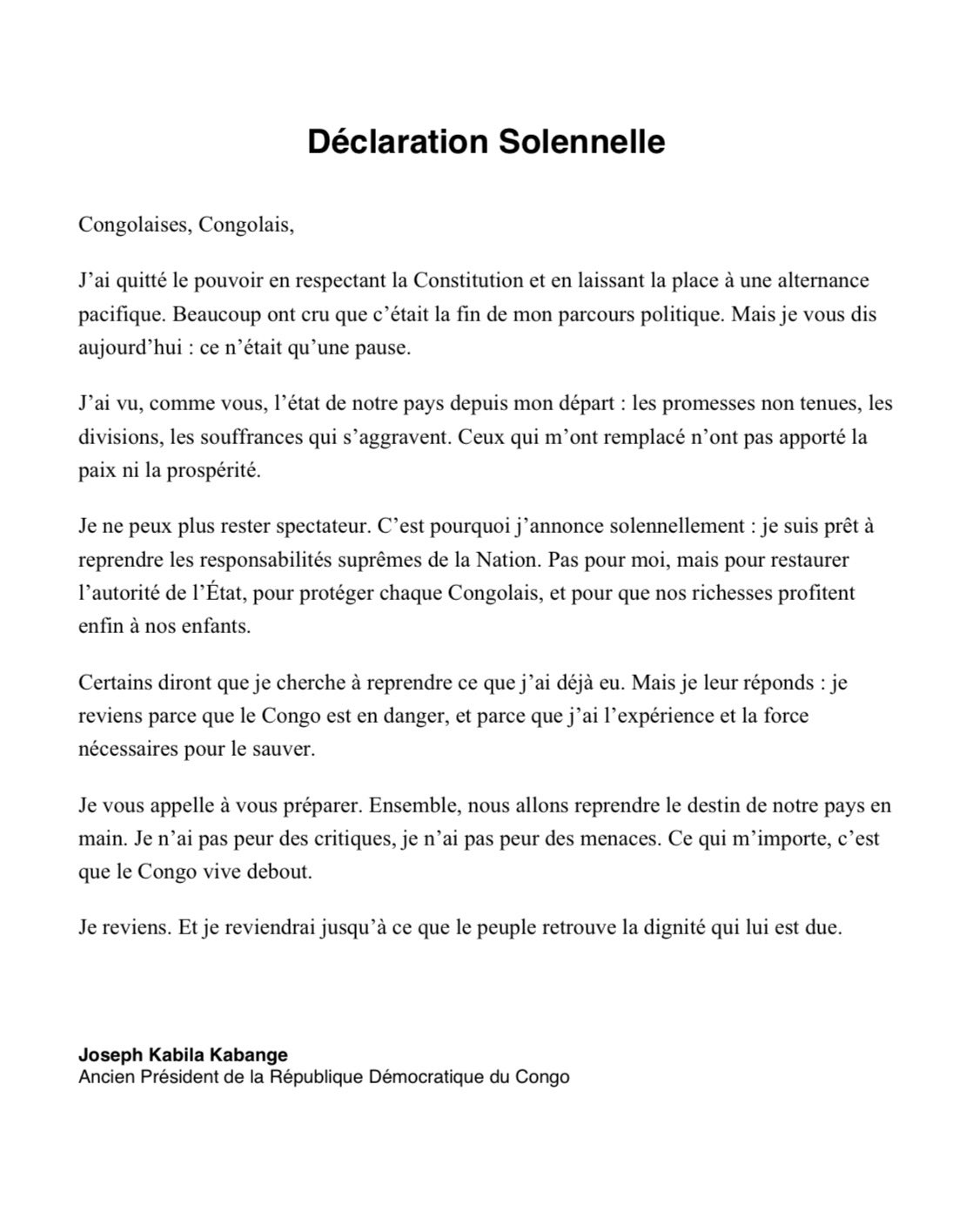In a statement that has sparked widespread debate, Joseph Kabila Kabange, former President of the Democratic Republic of Congo (DRC), officially announced his return to politics after years of staying on the sidelines. Kabila emphasized that his time away from the political scene was merely a pause, not a permanent retirement, and declared that he could no longer stand by and watch the country sink deeper into crisis.
Kabila reminded Congolese citizens that he left power peacefully, respecting the country’s constitution and enabling a smooth transfer of power. However, he stressed that since his departure, the country has suffered significant setbacks in governance, security, and economic stability. According to him, those who succeeded him failed to deliver peace or prosperity, which is why he now feels compelled to return and repair what he calls the “collapse of state authority” while giving hope back to the Congolese people.
In his message, Kabila asserted that his comeback is not for personal gain but to protect the Congolese people, restore the strength of state institutions, and ensure that the nation’s vast natural resources benefit future generations rather than being exploited by a few elites or foreign interests. He addressed critics who accuse him of seeking to reclaim power for himself, saying he is prepared to face insults and threats, as his sole mission is to safeguard the country and restore its dignity.
Kabila’s announcement has the potential to significantly reshape Congo’s political landscape, especially as the country grapples with escalating insecurity in the eastern regions, where armed groups such as M23, Wazalendo, and others continue to wreak havoc. Analysts note that Kabila may leverage his past experience in military and security matters to rebuild a strong national army. However, there are concerns that his return could also inflame tensions, especially in areas where his previous leadership was seen as repressive or neglectful.

On the electoral front, Kabila’s comeback poses a direct challenge to President Félix Tshisekedi and his ruling coalition, potentially creating a volatile political climate ahead of the 2028 elections. Internationally, this move could also disrupt Congo’s current alliances. Kabila was closely aligned with China during his tenure, while Tshisekedi has leaned heavily toward partnerships with Western countries such as the United States and the European Union. Kabila’s return could therefore rekindle geopolitical competition over Congo’s strategic minerals, which are critical to the global technology and clean energy industries.
Among Congolese citizens, reactions are deeply divided. Some view Kabila as a leader capable of restoring stability and national unity after years of weak governance, particularly in security and economic matters. Others, however, remember him as a president whose tenure was marked by corruption, limited reforms, and the failure to permanently neutralize armed groups in eastern Congo. Opposition parties are also likely to interpret his return as a step toward consolidating power through force rather than democratic means, raising fears of a return to authoritarianism.
Political analysts suggest that Kabila is employing a populist strategy, portraying himself as the savior of a nation while blaming the current administration for weakness and mismanagement. This approach has been used by political figures worldwide, especially in nations with histories of conflict and fragile economies.
There are three plausible scenarios for Kabila’s political future:
- He could run legally in the 2028 presidential elections and win through the ballot box.
- He might attempt to leverage public pressure and military influence to bring about a change in leadership outside of the electoral process.
- His announcement may simply be a strategy to reinvigorate his political party, the PPRD, and regain influence in national negotiations, without necessarily seeking to return to the presidency himself.
Kabila’s statement puts significant pressure on President Tshisekedi and the current government at a time when armed groups continue to grow in strength. His comeback could either mark a turning point that brings hope and stability to the nation or plunge the DRC back into deeper turmoil, depending on how citizens, political factions, and international partners respond in the coming months.




